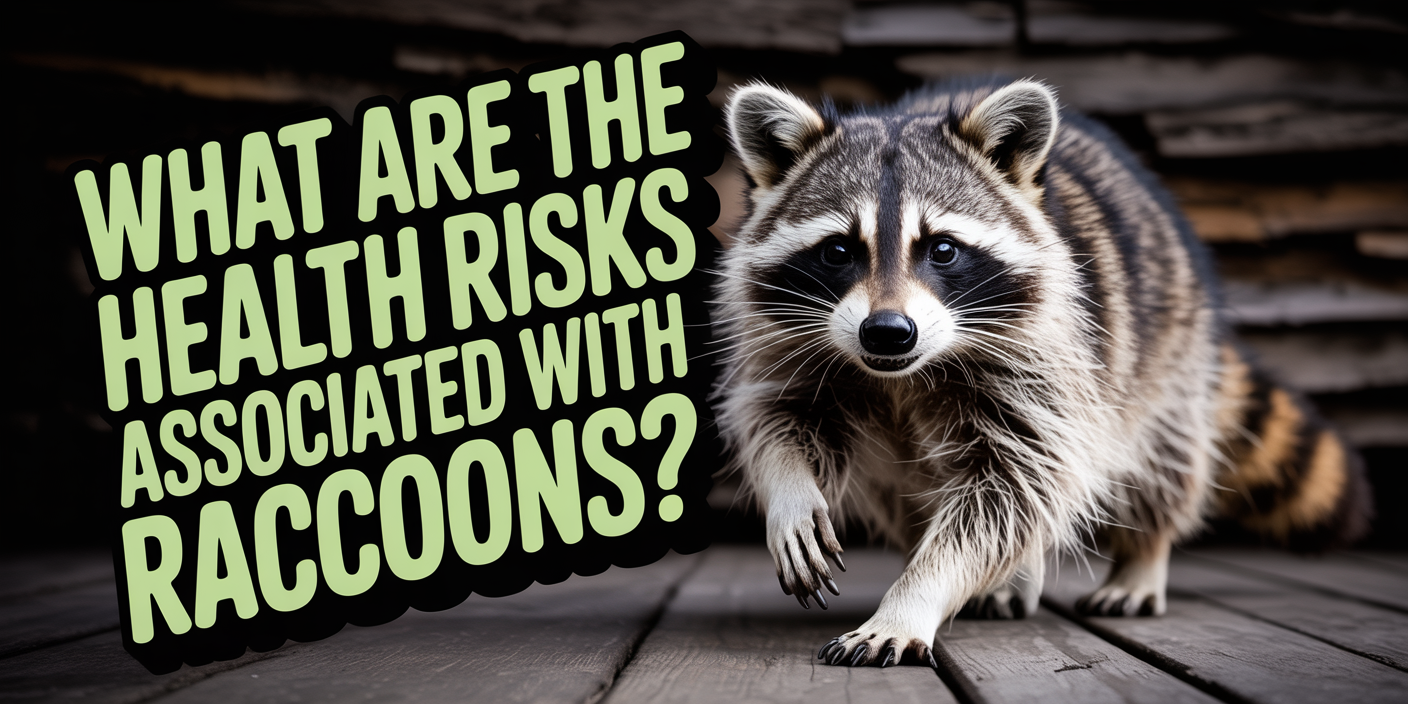“Yes. Raccoons can spread rabies, leptospirosis, and Baylisascaris roundworm, which causes serious brain and eye damage if ingested or inhaled. Their waste, fleas, and ticks also carry harmful bacteria and allergens that endanger people and pets.“
Raccoons may look like harmless nighttime visitors, but the health risks they bring into your yard, attic, or crawl space are anything but harmless. These wild animals carry a mix of viruses, parasites, and bacteria that can spread quickly, sometimes without you even realizing it.
If you’re dealing with a raccoon in the attic, you’re not just facing noise or insulation damage, you could be exposing your family to serious health concerns. From their droppings to their saliva and fur, raccoons leave behind contaminants that put both people and pets at risk.
That’s why calling AAAC Wildlife Removal for expert help is the safest move. In this article, we’ll break down the most dangerous health threats associated with raccoons and why early action is key to staying safe.
Learn more: What are the common behaviors of raccoons?
Rabies – The Most Well-Known Threat
Raccoons are among the most common carriers of rabies in North America, especially in urban and suburban areas. Rabies attacks the central nervous system and is nearly always fatal if not treated immediately after exposure.
Transmission usually occurs through bites, scratches, or contact with infected saliva, even if the animal doesn’t appear visibly sick. Rabid raccoons may act unusually aggressive or oddly tame, either way, close encounters are extremely dangerous and require urgent medical attention.
Raccoon Roundworm (Baylisascaris procyonis)
One of the most serious, and lesser-known, health threats from raccoons is a parasite called Baylisascaris procyonis, commonly known as raccoon roundworm. This parasite lives in the intestines of raccoons and is shed in their feces. The eggs are microscopic, become airborne when droppings dry, and can linger in contaminated soil or surfaces for years.
If inhaled or ingested by humans, especially young children, the roundworm can cause severe neurological damage, blindness, or even death. Pets are also at risk if they sniff or dig in contaminated areas. Because the eggs are invisible to the eye, exposure often happens before anyone realizes there’s a threat.
Leptospirosis and Other Bacterial Infections
Leptospirosis is a bacterial disease spread through raccoon urine, especially in moist environments like soil, puddles, or garden beds. Humans and pets can contract it through direct contact with contaminated water or by touching infected surfaces with cuts or mucous membranes.
Symptoms in people include high fever, muscle aches, vomiting, and in severe cases, liver or kidney failure. Dogs are particularly vulnerable, and outbreaks are more common in areas where raccoons frequently roam. Without early treatment, leptospirosis can become a life-threatening illness.
Parasites: Fleas, Ticks, and Mites
Raccoons often bring unwanted hitchhikers like fleas, ticks, and mites into the areas they infest. These parasites can spread to your pets, your family, and even your bedding or carpet, long after the raccoon itself is gone.
Ticks from raccoons may carry Lyme disease, while fleas can transmit tapeworms or trigger allergic reactions in sensitive individuals. Mites can cause skin irritation or infestations that spread quickly indoors. Once introduced, these pests are difficult to eliminate without professional treatment.
Mold, Allergens, and Airborne Hazards in Droppings
When raccoons take up residence in attics, walls, or crawl spaces, they often leave behind large amounts of droppings and urine. Over time, this waste seeps into insulation and wood, creating the perfect environment for mold growth and airborne bacterial contamination.
As the droppings dry out, harmful particles, including roundworm eggs and fungal spores, can become airborne and circulate through your home’s ventilation. This poses a serious risk for anyone with asthma, allergies, or weakened immune systems, and can cause long-term respiratory issues if not properly cleaned and sanitized.
Why DIY Cleanup Is Dangerous?
Cleaning up after raccoons may seem simple, but it’s one of the most hazardous parts of any wildlife infestation. Without the right protective gear, you risk inhaling toxic particles, disturbing roundworm eggs, or coming into contact with bacteria in urine and feces.
Store-bought cleaners and gloves aren’t enough to fully sanitize contaminated areas, especially in attics or wall voids. Professional wildlife sanitation teams use specialized equipment and disinfectants to remove pathogens safely and thoroughly, reducing your risk and preventing re-infestation.
Protecting Your Home and Health from Raccoons
Raccoons may seem like a minor nuisance, but the health risks they bring are anything but small. From rabies and roundworm to harmful bacteria and parasites, their presence can lead to serious medical concerns if not handled properly.
The safest approach is to keep your distance, avoid DIY cleanup, and call in professionals at the first sign of raccoon activity. With the right response, you can protect your home, your family, and your peace of mind.
Call AAAC Wildlife Removal for Safe Cleanup and Protection
Raccoons aren’t just unwanted guests, they’re a serious health risk to your home and family. At AAAC Wildlife Removal, we specialize in humane raccoon removal, expert sanitation, and long-term prevention strategies.
Our trained technicians don’t just remove the animal, they clean up hazardous waste, disinfect contaminated areas, and seal up entry points so it doesn’t happen again. Call AAAC Wildlife Removal today and let us help you protect your home the right way.




